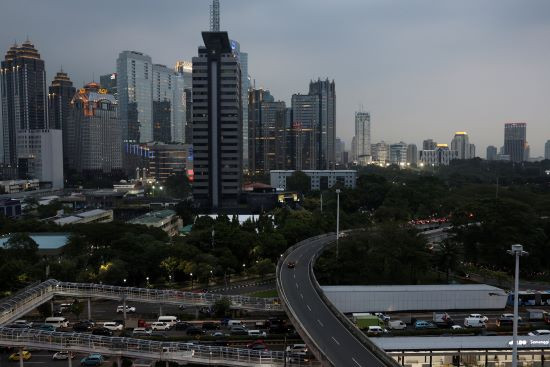Popular Reads
Top Results
Can't find what you're looking for?
View all search resultsPopular Reads
Top Results
Can't find what you're looking for?
View all search resultsHow deep is Indonesia’s capital market?
Indonesia, despite being ASEAN's largest economy, faces a complex web of obstacles hindering its financial deepening and leaving its capital markets shallow when compared to those of regional peers.
Change text size
Gift Premium Articles
to Anyone
D
espite being ASEAN's largest economy, Indonesia faces a complex web of obstacles hindering its financial deepening. Its capital markets are notably shallow compared to those of its regional peers, a direct result of ingrained structural, institutional and socioeconomic challenges. Overcoming these obstacles is important. New policy initiatives are needed to channel Indonesia's substantial savings into long-term, productive investments that unlock its full economic potential.
Several issues have recently emerged in Indonesia's financial sector. The tightening of bank liquidity in Indonesia is a result of a combination of factors, including a risk-on sentiment due to the escalating trade war, which led to capital outflows. Domestic factors, such as loan growth outpacing deposit growth, increased competition for third-party funds and the government's financing needs, are contributing factors. However, it is important to note that the government and financial regulators are actively working to manage these pressures and ensure the stability of the economic system.
From banking sector dominance to financial literacy
Indonesia's financial system is relatively small in comparison to the country’s economy and is overwhelmingly dominated by banks, which hold approximately 75 percent of all financial assets. This bank-centric model, a legacy of state-directed finance, limits the availability of long-term capital, as short-term deposits primarily fund banks. Consequently, the corporate bond market is relatively small, accounting for only about 2 percent of GDP.
A deep capital market relies on a robust base of domestic institutional investors. In Indonesia, this base is relatively small, accounting for only 5.2 percent of the country's GDP. In developed countries, pension funds play a crucial role as a long-term source of capital. This is due to low participation, with a limited labor force contributing to pensions. Furthermore, pension fund investment strategies are often regarded as too conservative and require diversification to maximize long-term returns.
Meanwhile, Indonesia has a considerably smaller stock market than peer countries. Some issues persist, including limited liquidity, with trading often concentrated in some blue-chip stocks. This is compounded by the low percentage of free-floating shares in many large companies, including state-owned enterprises (SOEs). Regulators and the Indonesia Stock Exchange (IDX) have collaborated to address this issue with the latest policy, which introduces a liquidity provider.
On the other hand, the number of retail investors has exceeded 17 million this month, which is almost double the number from five years ago. Along with that achievement, the burden now lies in improving financial literacy in Indonesia, including for retail investors. We aim for participants in the stock market to achieve positive returns. Considering the investor’s perspective is crucial for maintaining active retail investors, market depth and liquidity, as well as to enhance the attractiveness of companies for public listing on the stock exchange.


















